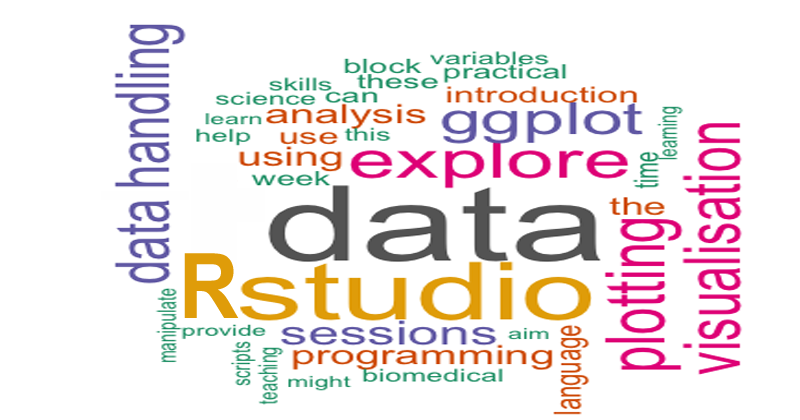About
This sessions are part of the first year module BMS109 Introduction to Biomedical Science, Department of Biomedical Science University of Sheffield. They are designed for first year biology students with little or no knowledge of programming and statistics, to enhance their data handling skils and to provide an introduction to the use of R programming for data analysis.
These sessions aim to:
-
making students aware of appropriate data handling and presenation techniques;
-
having an introduction to basic coding and use of workflow for optimal data analysis.
In these sessions you will use R programming languange for your data analysis and presenation. They are practiacal labs, in which you will work at the computer guided by the instructor and supported by demonstrators. Examples will be used to introduce concepts and key steps of programming.
SESSIONS OBJECTIVES
Following these sessions and additional practice/reading you should be able to meet the following learning objectives:
-
Acquire skills in presenting, interpreting and visualise data with R programming;
-
Be aware of issues related to data handling;
-
Be able to import/export data from R enviroment, manipulate data and produce high standard plots using R scripts;
-
Enhance your problem solving skills;
-
Acquire new transferable skills.
These sessions will enable you to take control of your data and critically assess the information contained in them. This is whilst enhancing your innovative thinking in data analysis. They will prepare you for the second year when statistics is introduced and for the third year when you have access to the bioinformatics module, where coding is esential.
Links for your additional Reading
The sessions are implemented using the open-source software R that can be dowloaded here. Familiarise yourself with the concept behind open-source software by exploring the site.
The most effective and complete help when you learn to code, is available on line. First point of help is “Google” where you can search for key words adding R language to find often the solution to the problem. This is an essential part of learning to code and to use R to explore your data. it is there for you, make the most of it.
Some suggested sites where additional material can be found, are listed below:
